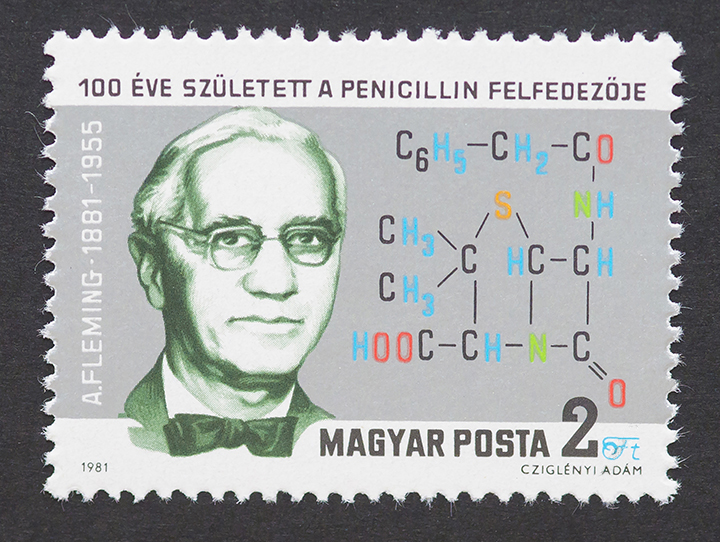Alexander Fleming (Hungary)
The Stamp
The stamp was issued in 1981 in Hungary, 100 years after Fleming’s birth.

The Doctor
Alexander Fleming (1881 - 1955) was born in Ayrshire, Scotland. He trained at St Mary’s and became a bacteriologist there.
In 1928, Fleming was experimenting with the influenza virus in the Laboratory of the Inoculation Department. After returning from a two-week holiday, he found that a mould had developed on an accidentally contaminated staphylococcus culture plate and noticed that the culture prevented the growth of the staphylococci.
Although Fleming stopped studying penicillin in 1931, his research continued and was finished by Howard Florey and Ernst Chain, at University of Oxford who are credited with the development of penicillin for use as a medicine.
They shared the 1945 Nobel Prize in Physiology or Medicine with Fleming.
Read the 1945 Nobel Prize acceptance speech
Urology Connections
Probably the greatest change for urologists, as a result of the introduction of penicillin, was in the effective treatment of gonorrhoea; this resulted in a dramatic decline in the number of gonococcal urethral strictures. Urethral stricture was the urological problem most frequently seen by urologists in the late 19th and early 20th centuries.
← Back to Stamp Collection